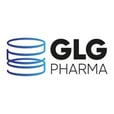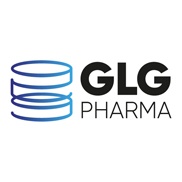GLG Pharma Attending Partnering For Faster Cure
GLG Pharma will be attending the Partnering for Faster Cures in New York City on November 16 through 18. The program is a matching of entrepreneurs looking for capital, investors and pharma companies looking for new ideas and technologies. The event is also peppered with researchers and patient advocacy groups as well as not-for-profits funding research organizations across a variety of diseases. Along with Richard Gabriel, COO of GLG Pharma, Greg Simon, CEO of Poliwogg will be attending. In 2003, Mr. Simon along with Michael Milken founded Faster Cures out the Milken Institute.
Greg Simon, CEO; Poliwogg, Inc.
Faster Cures’s goals are what the name implies, groups of patients, organizations, companies and entrepreneurs seeking a better way to fund Biotech and Pharma discovery programs so that they reach target patient populations sooner rather than later.
GLG Pharma is raising funds using the new Poliwogg platform. Poliwogg offers private company investment on its site. This is an example of how accredited investors can now democratize their investments across a portfolio of new startup companies.
“We are really excited about the Poliwogg platform as it offers investors direct access to startup companies such as ours” said Richard Gabriel; “Poliwogg’s platform uses standard SEC and FINRA rules and regulations for investment, it’s easy, secure and the valuations of the companies are in line with what previously only venture capital firms have had access to” Gabriel goes on to say. “For patient advocacy groups that want a direct opportunity to invest or for individuals that also want to invest directly in the development of a technology for a particular disease, Poliwogg offers an exciting and easy way to do it. Investors are able to spread their investments across multiple platforms and multiple technologies in multiple private companies.”

Richard Gabriel, COO; GLG Pharma
Faster Cures features this event as a mean of accelerating drug discovery, development and funding. The new Poliwogg platform allows companies like GLG Pharma to raise capital and also provides a crucial first step to the potential public offerings. The valuation increases of a private company moving to a public offering will then go directly to the investors, employees and entrepreneurs participating in the private funding rounds.
Click on the Poliwogg!







